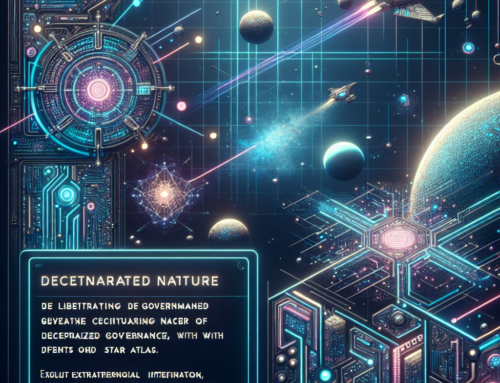Exploring Federalism in Star Atlas: A Titan Analytics Insight

Exploring Federalism in Star Atlas: A Titan Analytics Insight
In the evolving landscape of blockchain gaming, Star Atlas emerges as a fascinating realm where players can explore, engage, and immerse themselves in a blend of strategy and community-driven politics. One of the intriguing concepts that can be applied to this universe is federalism. At Titan Analytics, we explore how this governance model can enrich the player experience while offering a robust framework for the game’s development.
Understanding Federalism
Federalism, at its core, is a system of governance where power is divided between a central authority and various constituent units, such as states or provinces. This balance allows for local governance while maintaining a unified national structure. The key benefits of federalism include promoting individual autonomy, allowing tailored responses to local needs, and fostering innovation through diverse governance strategies.
Federalism in the Star Atlas Universe
In Star Atlas, players can participate in a complex environment that mirrors the concept of federalism. The game features multiple factions—such as the ONI Alliance, the Ustur Clan, and the MUD Alliance—each with their own political structures and unique characteristics. This factional diversity allows players to choose an allegiance that best aligns with their values, much like citizens electing local representatives in a federal system.
Decentralized Governance
Star Atlas takes the idea of player governance further by integrating decentralized decision-making processes. Players can vote on governance proposals, participate in economic management, and influence the game world’s future. This decentralized governance mirrors a federal model where citizens can have a direct impact on their local governments, making decisions that reflect their preferences and needs.
Local Autonomy vs. National Unity
One of the most compelling aspects of federalism is the tension between local autonomy and national unity. In Star Atlas, this is embodied by the inter-faction dynamics and the ongoing struggles for control of resources, territories, and political power. Each faction operates semi-autonomously while contributing to the larger narrative of the universe. This dynamic encourages cooperation and competition, challenges players to strategize effectively, and enhances the depth of the gameplay experience.
Implications for Players
For players, understanding the federalist structure of Star Atlas can enhance their engagement with the game. By aligning with a faction and participating in its governance, players can influence the development of their faction’s strategy and impact the broader game economy. As factions evolve, players have the opportunity to adapt and redefine their roles within this complex system, fostering a rich tapestry of narratives and interactions.
Conclusion
In summary, applying federalism to Star Atlas provides not only a powerful lens through which to analyze its governance and factional dynamics but also enriches the player experience. As players navigate the challenges of allegiance and governance, they become part of a living environment that mirrors the intricacies of real-world politics.
If you’re interested in diving deeper into Star Atlas analytics, visit Titan Analytics Star Atlas Data Modules for valuable insights. For any questions or inquiries, feel free to Contact Titan Analytics. Join us as we explore the strategies and dynamics that make Star Atlas a captivating universe!




